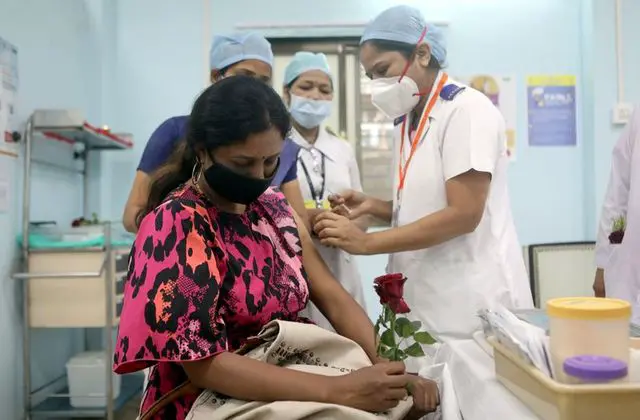The Nigerian government on Thursday alerted the people living in the country to be vigilant and embrace basic hygiene as Ebola Virus Disease (EVD) re-emerges in Liberia.
Ayotunde Adesugba, a spokesperson in the Federal Ministry of Health Ayotunde Adesugba said in a statement reaching Xinhua in Lagos, that the ministry was reactivating its response mechanism and increasing the level of its alert.
Adesugba said the resurgence of EVD in Liberia confirms that the Ebola Virus is still circulating in that country and transmission from person to person is possible.
He urged state governments to raise their alert level and report any suspected case to the Federal Ministry of Health.
According to the official, a 17-year-old boy from a village near the Liberian capital died of Ebola, noting that the boy had no history of traveling out of Liberia and no history of coming into contact with any known Ebola case.
"The boy has since been buried but Liberian health officials are worried that he may have transmitted the virus to many other people who came into contact with him," Adesugba added.
This means that the country, which was certified EVD free by the World Health Organization (WHO) on May 9, 2015 has witnessed a resurgence of the disease.
Meanwhile, the government of Lagos, Nigeria's most populous state, has advised the public to maintain adequate personal and environmental hygiene to prevent relapse of Ebola.
Modele Osunkiyesi, the Permanent Secretary, state Ministry of Health, said the warning became imperative in view of reported cases of the resurgence of EVD in some neighboring West African countries like Liberia and Sierra Leone.
She said the state government, in collaboration with the Federal Ministry of Health and other stakeholders, were maintaining relevant surveillance through the Port Health Services and community surveillance activities in all local government areas.
She said the state government had started outlining strategies to prevent the re-entry of the disease after being certified free of Ebola on Oct. 20, 2014, by the World Health Organization.
According to her, prevention of Ebola is a shared responsibility by all citizens.
Osunkiyesi said that EVD could be spread through close contact with the blood, body fluids, organs and tissues of infected animals.
She said that EVD could also spread through direct contact with the blood, body fluids and tissues of infected persons as well as handling sick or dead infected animals like monkeys and bats.
Early symptoms of EVD include fever, headache, chills, diarrhoea, nausea, vomiting, sore throat, backache and arthritis, while later symptoms include bleeding from the eyes, ears, nose, mouth and rectum.
Also, swelling of the eyes, genitals and rashes all over the body that often contains blood. Enditem
 简体中文
简体中文

